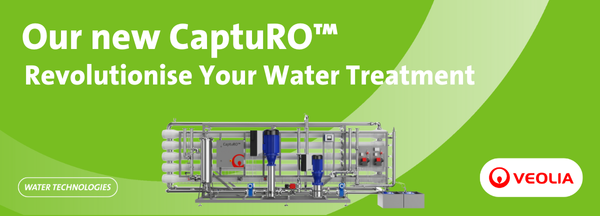Covering a broad range of industries with varying complex water and wastewater treatment requirements, the challenges facing the industrial sector are vast. Whether a solution is required for a brand-new facility, an existing facility that is not meeting regulatory standards or a company that wants to boost its environmental outlook beyond expectation, the solution is not always simple.
What are the Challenges for New Facilities?
One of the biggest challenges for the industrial market is the tighter level of restrictions imposed on brand new facilities. New facilities must carefully consider:
- Water withdrawal allowances
- Wastewater quality requirements
- Digital monitoring compliance
- Net-zero initiatives
Where an existing user may have a more lenient agreement that is a number of years old, as a newcomer, there is a serious risk of penalisation depending on how much water the facility is taking off the network, putting back into the wastewater network and also the quality of its wastewater.
It is also worth highlighting how water stress fluctuates seasonally, with many areas facing particular challenges during the summer months. Local authorities typically implement varying levels of restrictions throughout the year, with stricter limits on daily water withdrawal during drier periods. This seasonal variation in water availability, combined with the growing impacts of climate change and increasing industrial demand, means new facilities must carefully consider their year-round water consumption patterns from the earliest planning stages.
Early Planning is Critical
For water and wastewater technology and service providers such as Veolia Water Technologies UK, the key for new facilities is to assess each customer on an individual basis and to take into account the specific local authority restrictions. This will then help ensure that the best solution is provided, whether the user is looking to reduce the amount of water they withdraw, reduce the amount of water going to drain or limit particular components present in their wastewater.
Our customers have found it invaluable to involve our expert team in the development of a new facility from the outset, as conversely, should the facility have already been designed and planning permission sought, in many cases this places restrictions on the options available.
Financial Considerations
It is also important to consider the capital costs and operating costs within the early planning stages, as while innovative solutions may be available and affordable at the outset, it is important to take into account their affordability long term. While the latest cutting-edge solution may be operationally the most effective technology, it may not always be the best solution. Ensuring the early involvement of an expert water treatment provider, enables you to look at the different options and technologies available and also allows for development and advancements that the user may want to make in the future.
Compliance and Cost Management
Another challenge facing the industrial sector is balancing the investment in wastewater treatment technologies against operational costs. While there may be short-term financial temptations to delay upgrading treatment systems, this approach can lead to serious consequences, including enhanced regulatory scrutiny and reputational damage. We strongly advocate for proactive engagement with wastewater technology providers to develop compliant, cost-effective solutions before any issues arise. Early intervention typically proves more economical and helps maintain positive relationships with regulatory bodies while protecting brand reputation.
Sustainable Innovation and ROI
In today's industrial landscape, sustainable water management isn't just an environmental choice - it's becoming a business imperative. Many companies are now actively seeking advanced water recycling solutions, not only to meet corporate environmental initiatives but to ensure business resilience and operational continuity.
Our latest innovation, CaptuRO™, exemplifies how modern technology can deliver both environmental and financial benefits. This high-recovery reverse osmosis technology achieves up to 98% water recovery while reducing brine waste by 50-75% and cutting energy consumption by up to 35%. Such advances make water recycling increasingly attractive from both sustainability and financial perspectives.

However, each facility's needs are unique, and our role is to help customers understand the full spectrum of available solutions. Whether implementing cutting-edge technology like CaptuRO™ or optimising existing systems, we focus on delivering solutions that align with both sustainability goals and operational requirements. This approach ensures our customers can make informed decisions that protect both environmental resources and their bottom line while ensuring business continuity in an era of increasing water stress.
We strongly believe in finding the best solution for our customer, whether that is the most innovative solution or the most cost effective, we will always consider aspects like space and whether re-capturing energy or bioproducts to recycle is a valid option. Our expert team have access to a wide range of technologies, allowing them to provide the best advice and take the time to understand a customer’s needs, however simple or complex, to find the best solution.
Want to chat to our team further on this topic? Click here.